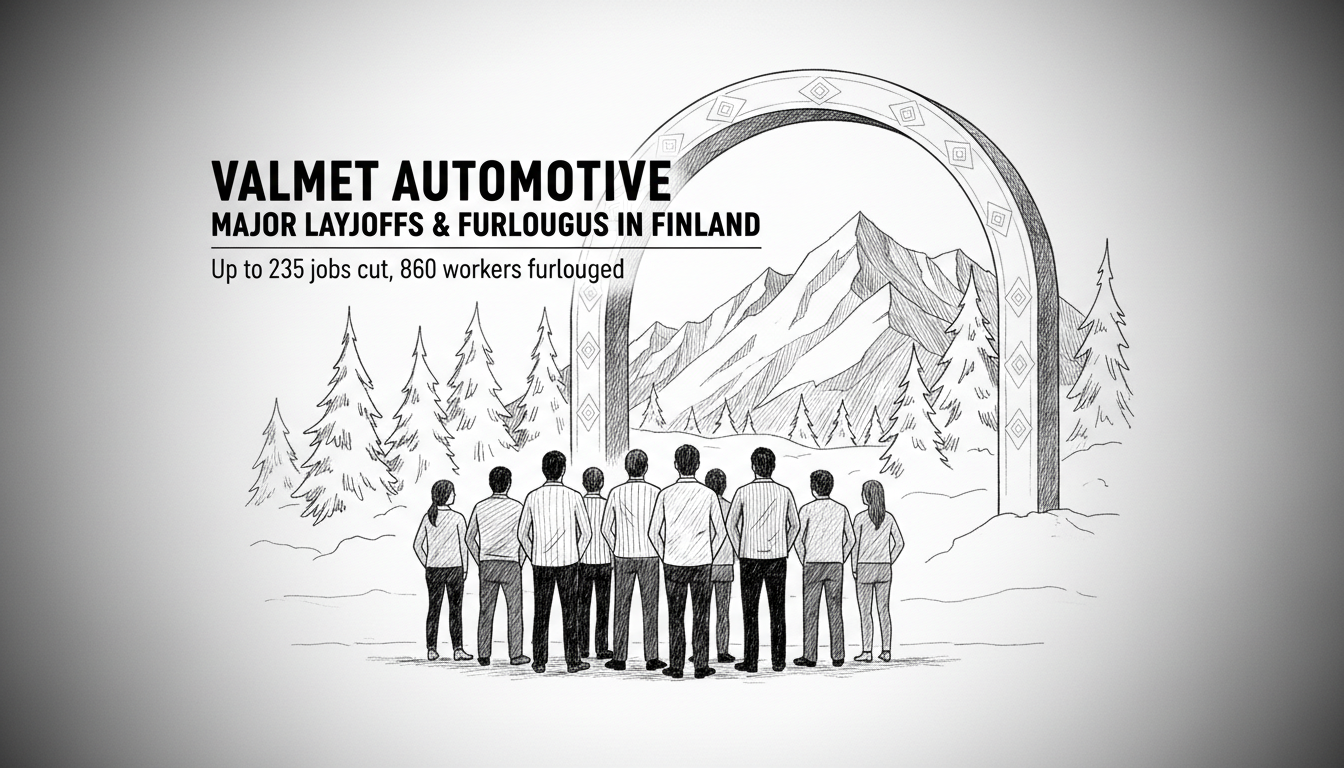Valmet Automotive has concluded change negotiations affecting its entire Finnish workforce. The company will terminate up to 235 employment contracts and implement temporary furloughs for as many as 860 employees. Some furloughs will be part-time arrangements according to the company's announcement.
The automotive manufacturer specializes in vehicle production and industrial contract manufacturing. It employs approximately 1,300 people across Finland who were all included in the negotiations.
Company executives stated these workforce adjustments aim to align staffing levels with current market demand. The measures also seek to improve profitability and competitive positioning in the automotive industry.
Valmet Automotive expects the reduction in work volume to be temporary. This explains why the company prioritized furloughs over permanent layoffs in its adaptation strategy. The manufacturer will also implement role changes and seek savings through office space solutions.
CEO Pasi Rannus said in a statement that negotiations focused on finding solutions that balance employee and company interests. The goal was to preserve unique industrial serial production expertise while addressing needs of the new strategic direction.
The Finnish automotive sector has faced challenges in recent years amid global industry transitions. Valmet Automotive's Uusikaupunki plant has been a significant employer in Southwest Finland since the 1960s. The company has manufactured vehicles for major brands including Mercedes-Benz and Think City.
This restructuring reflects broader pressures facing European automotive suppliers. Many are adjusting to fluctuating electric vehicle demand and supply chain uncertainties. Finland's strong worker protection laws typically require extensive negotiations before major workforce changes.
What does this mean for Finland's manufacturing sector? The temporary nature of most furloughs suggests Valmet expects production to recover. Still, losing over 200 permanent positions represents a substantial reduction in the region's industrial workforce.
International readers should understand that Finnish labor laws provide substantial protection during such transitions. Employees typically receive notice periods and severance packages based on their tenure. The government's unemployment system offers support during furlough periods.
The company's strategic shift comes as automotive manufacturers worldwide recalibrate production schedules. Many are balancing traditional combustion engine vehicles with growing electric vehicle portfolios. Valmet's contract manufacturing model makes it particularly sensitive to client production decisions.

